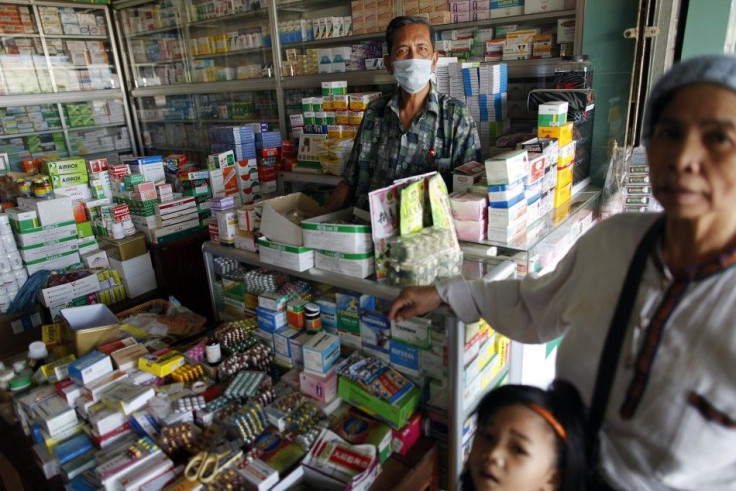Counterfeit Anti-Malarial Drugs Increase Fatalities, Boost Parasites' Resistance In Africa And Southeast Asia: Report

Over one-third of the drugs distributed to fight malaria in sub-Saharan Africa and Southeast Asia over the last 10 years were either fake or of poor quality, according to a report published by the Lancet medical journal on Tuesday.
The report analyzes several published and unpublished studies, some of which were conducted as early as 1999. It is a serious wake-up call in the global fight against this deadly disease, which plagues sub-Saharan Africa and Southeast Asia most severely but affects people all over the world.
In seven countries of Southeast Asia, 35 percent of 1,437 malaria treatment units sampled had the wrong chemical composition, while a full 36 percent of 1,260 samples were completely fake. In 21 countries of Africa, 35 percent of 2,297 samples had the wrong chemical makeup. Of another 389 samples, 20 percent were fake. There were also high instances of incorrect packaging and labeling.
The study explains that insufficient facilities to check the quality of anti-malarial drugs, poor consumer and health-worker knowledge about these drugs, their cost, and the paucity of appropriate regulatory and punitive action make these drugs attractive targets for counterfeiters.
Fake drugs can result in death when patients depend on them to recover from malaria. And while poor-quality drugs may deliver some immediate relief, they can also promote the parasites' resistance to medical treatment. In the long run, this means some treatments that are currently effective could be rendered useless.
Currently, the most widely used medical treatment for malaria comes from the plant-based compound artemisinin, which has been successful in decreasing malaria infections worldwide -- the World Health Organization (WHO) reports that malaria mortality rates around the world have fallen by over 25 percent since 2000.
But if poor-quality drugs build malaria's resistance to artemisinin, the consequences would be grave. Decreased efficacy of treatment has already been documented in Southeast Asia, particularly along the Thai-Cambodian border, according to WHO.
This is extremely serious because resistance to a number of formerly-effective malaria drugs originated from the Thai-Cambodian border and then spread west to South Asia, then Africa -- where most malaria deaths occur. If this were to occur with artemisinins, millions of lives could be at risk.
The source of these counterfeit drugs remains uncertain, but some of the 27 studies analyzed by the Lancet pointed to manufacturers in China and India. More investigation into the matter is recommended by the report, which also calls for increased testing facilities to find fake drugs as well as the establishment of protocols to find and prosecute counterfeiters.
In humans, malaria can be caused by five species of Plasmodium parasites. In particular, Plasmodium falciparum is the most common and the most deadly; it can be most effectively treated with artemisinin-based combination therapy.
Infectious parasites are spread via mosquitoes, so the presence of certain mosquito species can have an important effect on malaria transmission in a given region. For example, reports WHO, the long lifespan and strong human-biting habit of the African vector species is the main reason why more than 90 percent of the world's malaria deaths are in Africa.
In sub-Saharan Africa, it is estimated that one child dies of malaria every minute. Children are most vulnerable since adults can develop partial immunity over time.
But the scourge of malaria spans continents and age groups; it is endemic in 106 countries, putting 3.3 billion people at risk. Every year, reports the Lancet, between 655 000 and 1.2 million people die from Plasmodium falciparum infections.
Although most cases of malaria do not result in death, its symptoms can be severe. Adults and children alike can experience spells of high fever, aches, chills, vomiting and other symptoms. This creates a vicious cycle; in poor regions where preventive health care is not available to prevent malarial infections, the disruption caused by sickness can be an added strain on families who struggle to better their lives in developing countries.
© Copyright IBTimes 2024. All rights reserved.






















